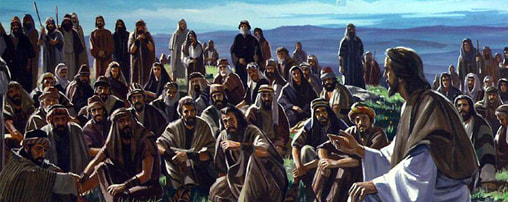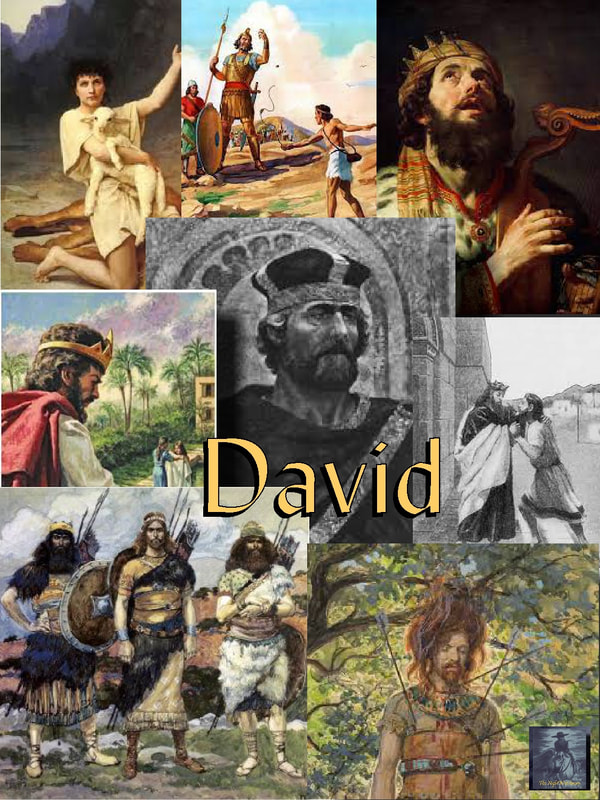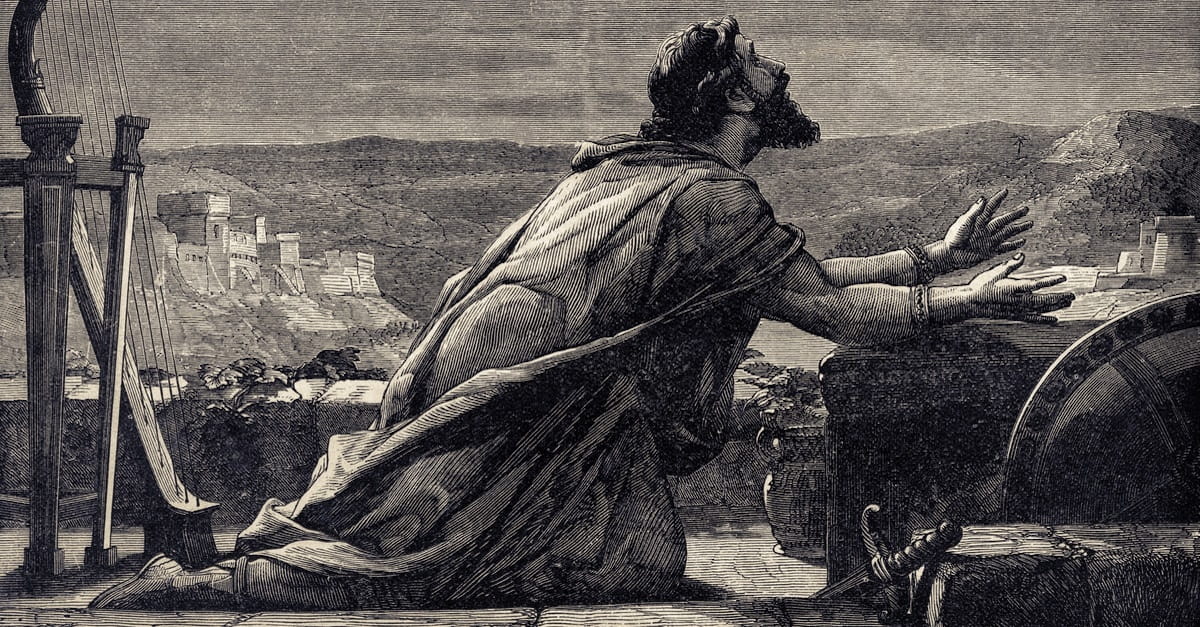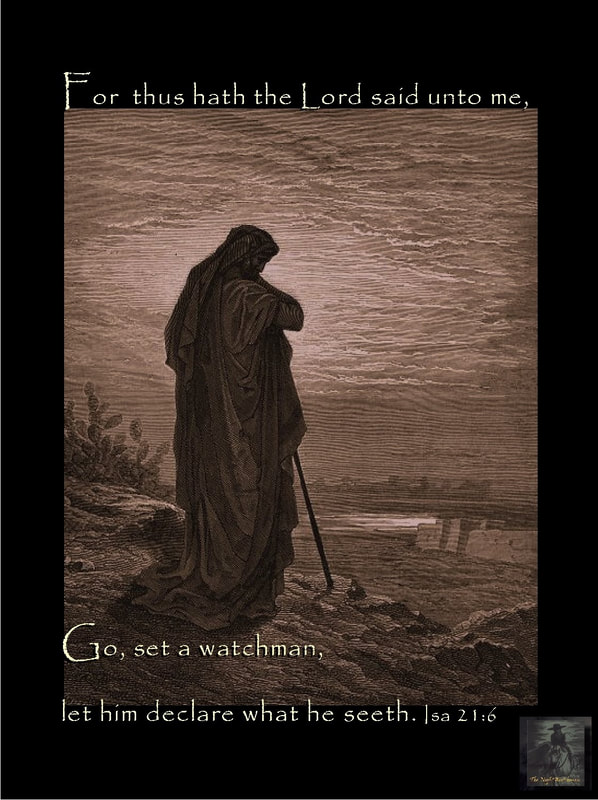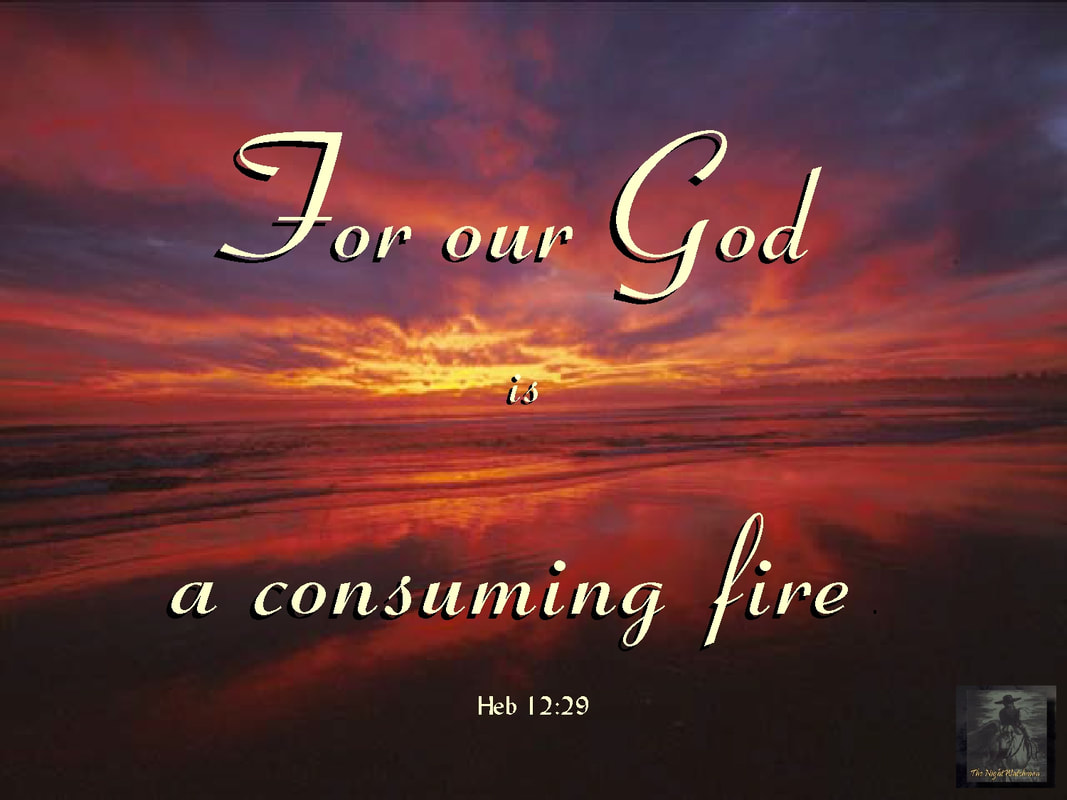|
All things are delivered unto me of my Father: and no man knoweth the Son, but the Father; neither knoweth any man the Father, save the Son, and he to whomsoever the Son will reveal him. Come unto me, all ye that labour and are heavy laden, and I will give you rest. Take my yoke upon you, and learn of me; for I am meek and lowly in heart: and ye shall find rest unto your souls. For my yoke is easy, and my burden is light. Mathew 11:27-30 All Things Delivered Unto Christ I. The important declaration here made. 1. All nations of the earth are delivered to Him. 2. All power in heaven and earth is given to Him. 3. All hearts are His. 4. The gifts and graces of the Spirit are His. 5. Principalities and powers are His. II. The ground on which this declaration was made. His mediatorial character-“Wherefore God hath highly exalted Him,” etc. III. To make a practical application of the subject. We may think that if all things are given to Christ, He does not need our puny efforts. 1. That the command of God on this point is imperative and binding upon every one who professes to know His name. 2. God works in and by the use of means. 3. A principle of gratitude will constrain the real Christian to engage, and that heartily, in this glorious work. 4. The Christian will not only be influenced by love to his Saviour, but also by a deep and tender compassion to the souls of his fellow creatures. 5. A dreadful curse is denounced against those who refuse to lend a helping hand to the cause of God. 6. There is encouragement to active exertion in that Christ has promised a reward to every effort made to promote His glory. (W. Bolland, M. A.) A Striking Declaration I. Of our Lord’s personal and mediatorial dignity. His personal dignity-the Son of God. All the fulness of the Godhead dwelt in Him. His mediatorial dignity as the Son of Man. All things are delivered unto Him. II. Of the standing method of the divine dispensations. It is indispensable to the safety and happiness of man that he should become acquainted with God. God, abstractedly considered, is absolutely unintelligible and unapproachable to guilty man, except through a Mediator. Learn: the need of Divine teaching; the importance of humility; the encouragement to the humble seeker. (J. Hirst.) Christ Officially Delegated In times of distress, every man is at liberty to do his best for the public welfare; but the officer commissioned by his sovereign is armed with a supreme right to give counsel or to exercise command. Away there in Bengal, if there are any dying of famine, and I have rice, I may distribute it of my own will at my own charge. But the commissioner of the district has a special warranty which I do not possess; he has a function to discharge; it is his business, his vocation; he is authorized by the government, and responsible to the government to do it. So the Lord Jesus Christ has not only a deep compassion of heart for the necessities of men, but he has God’s authority to support Him. The Father delivered all things into His hands, and appointed Him to be a Saviour. (C. H. Spurgeon.) I. The inconceivable dignity of His person-“no man knoweth the Son but the Father.” 1. Nor the wisest man in a state of nature. 2. Neither do His own people know Him in the sense of the text. How little is plain because their love is so faint. 3. The glorified saints and holy angels, who behold as much of His glory as creature can bear, do not know Him as He is. A vessel east into the sea can but receive according to its capacity. 4. This proves His Divinity. II. His authority. III. His office-“The Son will reveal Him.” (Bishop Newton.) Christ-The Burden Bearer Because all things were given to him by the Father-he takes His place as our burden bearer, Savior, Redeemer, and Great High Priest. With the authority given to Him by the Father, he opens His heart and arms-and says "Come" to all who would take refuge in Him. Rest in Christ for the Heavy-laden I. What it is. “Rest,” not rest in sin, not rest from trouble. It is rest from sin-its guilt, misery, power. It is rest in trouble. II. Of whom is this blessing to be obtained. The conscious greatness these few simple words indicate. Have you ever tried to comfort a troubled heart? Beyond your power. It is the prerogative of Him who made the soul to give it rest. There is more power in Him to comfort, than in the world to disquiet. III. Who may obtain this rest from him-”All that labour.” These words express the inward condition of man. We do indeed toil. Some weary themselves to work iniquity. The world has worn some of you out. The burden of affliction; guilt-our corruptions. IV. How they who desire may obtain it-“Come.” 1. Literally, when lie was on earth. 2. Faith in operation. Hagar went to the well and drank, and was saved. Those who have found rest in Christ, remember where you found it. See on what easy terms we may find rest. Some know they are sinners, but are not weary of sin. (C. Bradley.) Rest for the Weary There are three sorts of trouble. 1. There is head-trouble-to do what is right. 2. There is heart-trouble. The interior grief. 3. There is soul-trouble. Christ gives rest from these. (W. G. Barrett.) A special invitation 1. It is personal-“Come unto me.” God directs to Christ, not to His members. 2. It is present-“Come “ now, do not wait. 3. So sweet an invitation demands a spontaneous acceptance. 4. He puts the matter very exclusively. Do nothing else but come to Him. Arguments which the Saviour used:- 1. Because He is the appointed mediator-“All things are delivered unto me of My Father.” 2. Moreover the Father has given all things into His hands in the sense of government. 3. Christ is a well-furnished mediator-“All things are delivered unto Me.” He has all the sinner wants. 4. Come to Christ because He is an inconceivably great mediator. No man knows His fulness but the Father. 5. Because He is an infinitely wise Saviour. He understands both persons on whose behalf He mediates. 6. He is an indispensable mediator-“Neither knoweth any man the Father save the Son.” (C. H. Spurgeon.) Coming to Christ and believing, are in Scripture used to signify one and the same thing. I. The first step in coming to Christ is by baptism. II. The next step is by prayer. III. A farther step is by repentance and confession of sin. IV. We are said to come to God by hearing His Word, and receiving instruction from Him. V. Also by receiving His Holy Supper: and- VI. By putting our whole trust and affiance in Him, relying upon Him for salvation, and placing all our hopes and confidence in His merits and satisfaction. (Matthew Hole.) (Biblical Illustrator) Rest Under the Yoke "Take my yoke upon you - Believe in me: receive me as your prophet, priest, and king. For I am meek and lowly in heart - Meek toward all men, lowly toward God: and ye shall find rest - Whoever therefore does not find rest of soul, is not meek and lowly. The fault is not in the yoke of Christ: but in thee, who hast not taken it upon thee. Nor is it possible for any one to be discontented, but through want of meekness or lowliness." John Wesley
"Strange paradox! that a man already weary and overloaded must take a new weight upon him, in order to be eased and find rest! But this advice is similar to that saying, Psa_55:22. Cast thy burden upon the Lord, and he will sustain thee; i.e. trust thy soul and concerns to him, and he will carry both thyself and thy load. I am meek and lowly in heart - Wherever pride and anger dwell, there is nothing but mental labor and agony; but, where the meekness and humility of Christ dwell, all is smooth, even, peaceable, and quiet; for the work of righteousness is peace, and the effect of righteousness, quietness and assurance for ever." Isa_32:17. Adam Clarke Joh 6:37 All that the Father giveth me shall come to me; and him that cometh to me I will in no wise cast out. 2Sa 23:1 Now these be the last words of David. David the son of Jesse said, and the man who was raised up on high, the anointed of the God of Jacob, and the sweet psalmist of Israel, said, 2Sa 23:2 The Spirit of the LORD spake by me, and his word was in my tongue. 2Sa 23:3 The God of Israel said, the Rock of Israel spake to me, He that ruleth over men must be just, ruling in the fear of God. 2Sa 23:4 And he shall be as the light of the morning, when the sun riseth, even a morning without clouds; as the tender grass springing out of the earth by clear shining after rain. 2Sa 23:5 Although my house be not so with God; yet he hath made with me an everlasting covenant, ordered in all things, and sure: for this is all my salvation, and all my desire, although he make it not to grow. 2Sa 23:6 But the sons of Belial shall be all of them as thorns thrust away, because they cannot be taken with hands: 2Sa 23:7 But the man that shall touch them must be fenced with iron and the staff of a spear; and they shall be utterly burned with fire in the same place. In David we have: (1) an example and (2) a warning. I. The characteristic of David was loyalty to the Lord his God, loyalty to the King of kings. Loyalty is love evinced towards a superior, love which induces us to do all that in us lies, as circumstances from time to time admit, in small things or in great, to promote the glory of Him whose servants and subjects we are, and to advance the interests of His kingdom. We are to show our loyalty: (1) by from time to time renewing our vow as subjects and soldiers of the great Captain of our salvation; (2) by seeking to enkindle in our souls, through prayer for the renovating influences of the Holy Ghost, love towards Him who first loved us; (3) by looking out for opportunities of service. The many mantles of David-and paradoxes: (1) A shepherd but, also giant killer (2) A psalmist, but also a warrior (3) A fugitive running from Saul-trying to kill him, but also King II. The history of David is also a warning. However excitable the feelings of devotion may be, that man is not in a state of grace whose conduct is not conformable to the moral requirements of the Gospel. David fell; and if David had not repented, he would have perished everlastingly. Those whose hearts are fervent in adoration have need to take warning from David and watch as well as pray. Recommended: Psalm 51 "The sweet psalmist of Israel." — 2Sa_23:1 Among all the saints whose lives are recorded in Holy Writ, David possesses an experience of the most striking, varied, and instructive character. In his history we meet with trials and temptations not to be discovered, as a whole, in other saints of ancient times, and hence he is all the more suggestive a type of our Lord. David knew the trials of all ranks and conditions of men. Kings have their troubles, and David wore a crown: the peasant has his cares, and David handled a shepherd's crook: the wanderer has many hardships, and David abode in the caves of Engedi: the captain has his difficulties, and David found the sons of Zeruiah too hard for him. The psalmist was also tried in his friends, his counsellor Ahithophel forsook him, "He that eateth bread with me, hath lifted up his heel against me." His worst foes were they of his own household: his children were his greatest affliction. The temptations of poverty and wealth, of honour and reproach, of health and weakness, all tried their power upon him. He had temptations from without to disturb his peace, and from within to mar his joy. David no sooner escaped from one trial than he fell into another; no sooner emerged from one season of despondency and alarm, than he was again brought into the lowest depths, and all God's waves and billows rolled over him. It is probably from this cause that David's psalms are so universally the delight of experienced Christians. Whatever our frame of mind, whether ecstasy or depression, David has exactly described our emotions. He was an able master of the human heart, because he had been tutored in the best of all schools-the school of heart-felt, personal experience. As we are instructed in the same school, as we grow matured in grace and in years, we increasingly appreciate David's psalms, and find them to be "green pastures." My soul, let David's experience cheer and counsel thee this day. Charles H. Spurgeon Over the years I've heard many a preacher and teacher say from their platforms "you need the favor of man to distinguish whether God has really called you into His service". Another thing these people focus on is, how many things are you involved in, how busy are you in your church, or community (how far can you stretch yourself). Really? This is what Jesus has to say on this subject: Luk 6:26 Woe unto you, when all men shall speak well of you! for so did their fathers to the false prophets. Much of what's done today in church, and communities is for a show, to impress, and gain attention, and adulation. Of course there's those who are sincere, and do it to serve-but there's always a mingling of those who have an agenda. Those who seek to be universally popular have these characteristics: (1) Those who worship wealth; (2) those satisfied with their present life; (3) those who live for present enjoyment; (4) those whose aim is human praise and adulation. If anyone wants to spend some quality time on this, should study these verses, Mic_2:11; Joh_7:7, Joh_15:19; Rom_16:18; 2Th_2:8-12; Jas_4:4; 2Pe_2:18-19; 1Jn_4:5-6; Rev_13:3-4 Whoever does his duty will meet those who oppose him. Christ was reviled and slandered, anyone who truly follows Him will be also. When I watch those who pat one another on the back, smile and praise each other, it speaks volumes to me. God is looking for people who have this kind of heart today: 1Ki 22:13 And the messenger that was gone to call Micaiah spake unto him, saying, Behold now, the words of the prophets declare good unto the king with one mouth: let thy word, I pray thee, be like the word of one of them, and speak that which is good. 1Ki 22:14 And Micaiah said, As the LORD liveth, what the LORD saith unto me, that will I speak. Micaiah prophesied what God gave him, which enraged the King, and he said: 1Ki 22:18 And the king of Israel said unto Jehoshaphat, Did I not tell thee that he would prophesy no good concerning me, but evil? This got the prophet put in prison, but everything he spoke, came to pass. I suggest doing a study on the rest of this chapter in 1kings to verse 40, here you see the results of someone truly called of God, sold out to God, and willing to take the ridicule and punishment and speak the truth. God was with Micaiah, and he knew it, and didn't need the praise of men. But, he was sent to prison for his courage, and God allowed it. God was also with John the Baptist-but he was sent to prison, and beheaded for speaking the truth. They wouldn't conform, bend, or compromise. People in the pews, and most preachers, won't focus on this, it doesn't tickle the ears, or fill the pocketbooks. Someone with strong faith is not guaranteed popularity, lots of money, or being blessed with ability to influence people-you may influence them, but not the way the prosperity preachers do. You may find your only real friend-is God himself. Is God enough, when everybody else walks away? If you really want to find out what it's like to be called of God, and stand for Him-take the time, get into the bible, talk to the Lord yourself, and you will come away with insights you will not hear in most churches. If you do this, you'll also find yourself torn-a battle will go on inside you-"do I go on and follow the Lord-or go back to the world". Many choose this world-as Judas did. But, if you choose God-and once you've tuned your ears and spirit to the voice of Him, your discernment will be keen, and quick to pick up the difference between the fake, and the truth. It's priceless. Lorna Couillard WHAT JEHOVAH SAITH… THAT WILL I SPEAK
8/16/22 I've received feedback on this, and one statement I've gotten often- "If you want to be a leader, you have to learn to serve". I'll challenge anyone to go to the blog page of this site, and purchase an E-book of my book The NightWatchman; not because I need or want the money, an E-book is only $3.99- it will answer this issue fully. In the book I give accounts of numerous churches, and ministries I served under over the years, from my early days as a Christian, up to the present. I tell of the incidents I found myself entangled in, and situations that I had no control over-but I found myself confronted with making a choice-either follow what the bible said and taught on the situation, or do what the church/ministry wanted me to do. I made the choice to follow what the bible teaches in each case-and it has cost me much each time, including relationships with family members. I do not regret it, and would do the same thing again. God knows what I've lived through, and the choices I made, and praying every time, before I made those choices, I'd do the same thing again. I was saved alone in my house in 1978, and was delivered from alcoholism, and many demonic forces due to my involvement with the Occult and witchcraft-I studied and prayed many long hours alone in my house, and learned God's ways, and His power to deliver, and answer prayer in this manner. When I've found myself in the middle of situations where sin and deceit are evident-I've had to make up my mind to follow man-or God. I chose God, and payed the prices for it. I don't regret it. I follow Jesus Christ, and am willing to listen to, or sit under someone's authority, if God directs me to, who proves they are walking with the Lord, and staying in His word. I will not sit under anyone who is teaching their own philosophies and doctrines; that's where I draw the line. In my book-I tell how I found myself in a situation very much like Ravi Zacharias- and his misconduct, and blew the whistle. I was evicted from the church for it. I've no doubt there are many in Ravi's ministry-who wish they had done the same, but kept their mouths' shut, to keep their paychecks. I didn't care what happened, I wasn't going to sit under that corruption-and payed the price. There's much more in the book, of other situations, just as bad. And, like I said, I'd do the same thing again. Therefore doth my Father love me, because I lay down my life .... No man taketh it from me, but I lay it down of myself — Joh_10:17-18 History Has Come Full Circle
It is strange how often in the course of history the wheel has "come full circle." The impossibilities of yesterday have proved the commonplaces of today. Our Christian faith has always had its elements which powerfully commended it to men, and always there have been aspects of it which were obstacles to its acceptance; but the singular fact which steadily emerges from a growing knowledge of its story is how often the glory of the past becomes the difficulty of the present. One sees that in regard to miracles. Once they were confirmations of the faith. For multitudes the Gospel was authenticated by the signs and wonders of the Lord. And now for multitudes these very miracles are obstacles and stumbling blocks, only making it harder to believe. Today it is the divinity of Christ which so many find it difficult to credit; in the early days of Christianity there was far more difficulty over His humanity. Today we have to battle with agnosticism, which is the denial of all certain knowledge; but in the early Church the conflict was with gnosticism, which, of course, is agnosticism's opposite. The Change in Attitude Towards Christ's Death and Resurrection Something of the same kind is seen in regard to our Lord's death and resurrection. Nobody today questions that He died, but many question if He rose again. That He incurred the bitter enmity of men by the fearless proclamation of His message, that the passions He inevitably roused finally brought Him to His death—all this seems so natural to us that no one has any trouble with the cross now, viewed, I mean, just as a fact of history. The problem for us is not that Christ should die; the problem is that He should rise again, with the very body which the nails had pierced and which had known the thrusting of the sword. Multitudes of earnest souls have difficulty in crediting that. This is seen in the various attempts of modernism to explain away His resurrection. No one tries to explain away His death now. It is universally accepted that He died. Nobody finds it a thing almost incredible that at last He was hung upon a tree. The thing almost incredible to many is that on the third day He rose again, in all the power of an endless life. The Mystery of Mysteries for the Early Disciples And yet, if I do not greatly err, the opposite was true in the first days. For those who stood nearest to the Lord the staggering difficulty was His death. They had seen Him in conflict with all the powers of darkness, and from every conflict He had emerged victorious. He had challenged evil in all its ugly forms, and as a Conqueror driven it from the field. He had marched on in triumph, in the power of the Holy Spirit, and every foe of full abundant life had been forced to acknowledge His supremacy. Blindness had vanished at His word. Leprosy had departed at His touch. Fevers had fled away, and the withered arm had become strong again. Even death itself, that universal conqueror, had been forced to render up its prisoners at the kingly command of the Lord Jesus. All this they had seen with their own eyes. It was the constant experience of comradeship. They had walked with One who had matched Himself with death and compelled death to acknowledge he was beaten. And to them the thing incredible was this, that He, who had triumphed all along the line, should Himself become a prisoner of the tyrant. For us the resurrection is the staggering thing: the death but the inevitable end. For those who had corn-partied with Jesus it was the other way about. That He should die, that death should conquer Him, that over Him the grave should be victorious, was to them the mystery of mysteries. Almost certainly some such thought as this moves through the disciples' aversion from the cross. It underlies their incredulous astonishment when our Lord began to speak about the end. That they heard with horror of a death of shame is in consonance with human nature. Mingling with that horror was the agony of losing their Beloved. But perhaps we shall never fully understand their wild and incredulous astonishment till we recall the personality of Jesus. Men find it difficult to associate death with powerful and arresting personalities. From Nero to Lord Kitchener we trace the conviction that the dead are living. And for men who had companied with Jesus and seen the energies of His victorious life, it must have been extraordinarily hard to picture Him under the power of the grave. That He who was the life should be overcome by the opposite of life, that He who was continually giving life should be powerless to retain His own, this was what perplexed those earliest followers mingling with their love and sorrow, whenever Jesus turned their thoughts to Calvary. It was easy to think of Him as living; it was impossible to think of Him as dead. How could death, whom He had faced and beaten, overthrow that radiant personality? And now the wheel has "come full circle," and it is not the fact of His death that staggers anybody; it is the assertion that He rose again. Christ's Death Was a Glorious Act of Service And it was then, brooding in the darkness, that the word of Jesus came back to them with power. They recalled how He had told them once, "I lay it down of myself." That death, which was so hard to understand, was not the ghastly token of defeat. It did not mean that He who had raised Lazarus had Himself been beaten by the enemy. It meant that He had given Himself, in the wise and holy purposes of love, into the clutching fingers of the tyrant. His death was not a dark necessity. It was a glorious and crowning act of service. The very love that had conquered death for Lazarus submitted to it for the sake of sinners. So did the death of Jesus for these sorrowing men cease to be an inexplicable problem and become the center of their hope and joy. |
Welcome
In this page there will be devotions/poems music and inspirational material 
The Lord Will Pour Out His Spirit
And it shall come to pass afterward, that I will pour out my spirit upon all flesh; and your sons and your daughters shall prophesy, your old men shall dream dreams, your young men shall see visions:
And also upon the servants and upon the handmaids in those days will I pour out my spirit. And I will shew wonders in the heavens and in the earth, blood, and fire, and pillars of smoke. The sun shall be turned into darkness, and the moon into blood, before the great and the terrible day of the LORD come. And it shall come to pass, that whosoever shall call on the name of the LORD shall be delivered: for in mount Zion and in Jerusalem shall be deliverance, as the LORD hath said, and in the remnant whom the LORD shall call. Joel 2:28-32 But this is that which was spoken by the
prophet Joel; And it shall come to pass in the last days, saith God, I will pour out of my Spirit upon all flesh: and your sons and your daughters shall prophesy, and your young men shall see visions, and your old men shall dream dreams: And on my servants and on my handmaidens I will pour out in those days of my Spirit; and they shall prophesy: Act 2:16-18 Resources
Madame Guyon - A Short and Easy Method of Prayer / Christian Audio Book (1 / 2) https://youtu.be/eihZWpAk7y4?si=PQ-_J3Y6i8u-N2Ac Union With God By Jeanne Guyon Chapter 1 Of 7 https://youtu.be/d5AfKS2dFLg?si=VtWAeEurkAddTDpL The Practice of the Presence of God - audiobook Brother LAWRENCE (1614 - 1691)- https://youtu.be/rRAs_BK1NR8?si=hGAL4C829aH7 DKMn Gander Story Poems
https://www.gander poems.org/ Archives
July 2024
|
Proudly powered by Weebly

